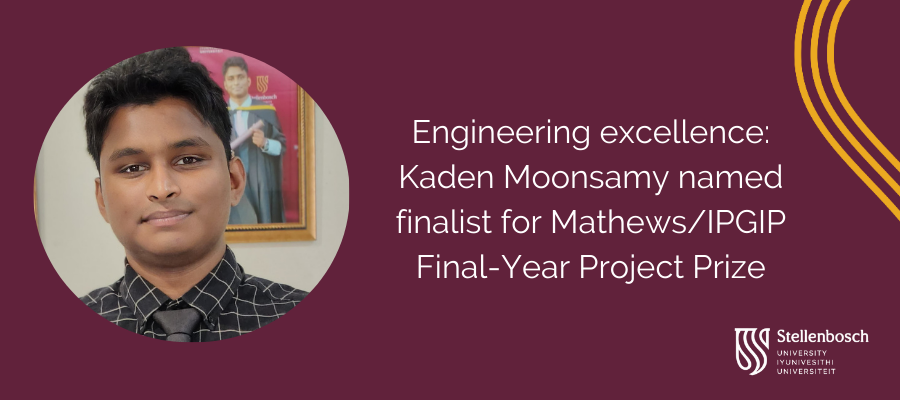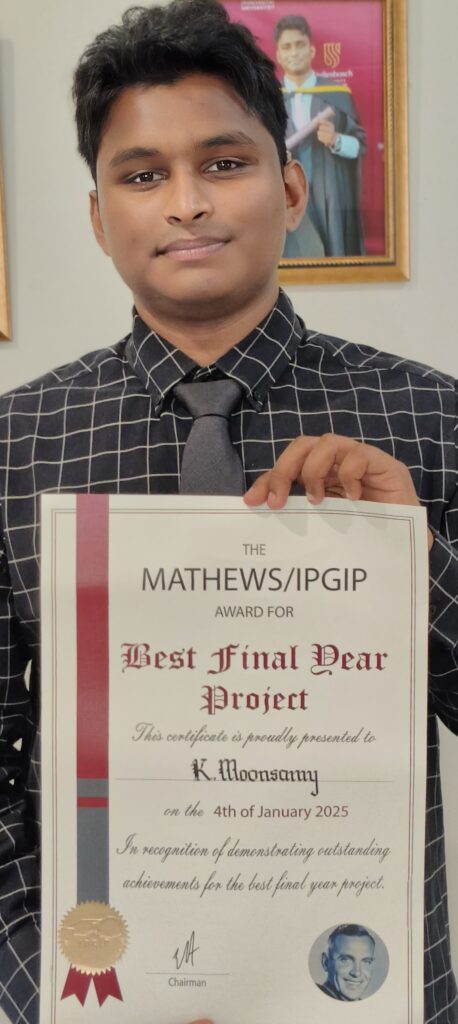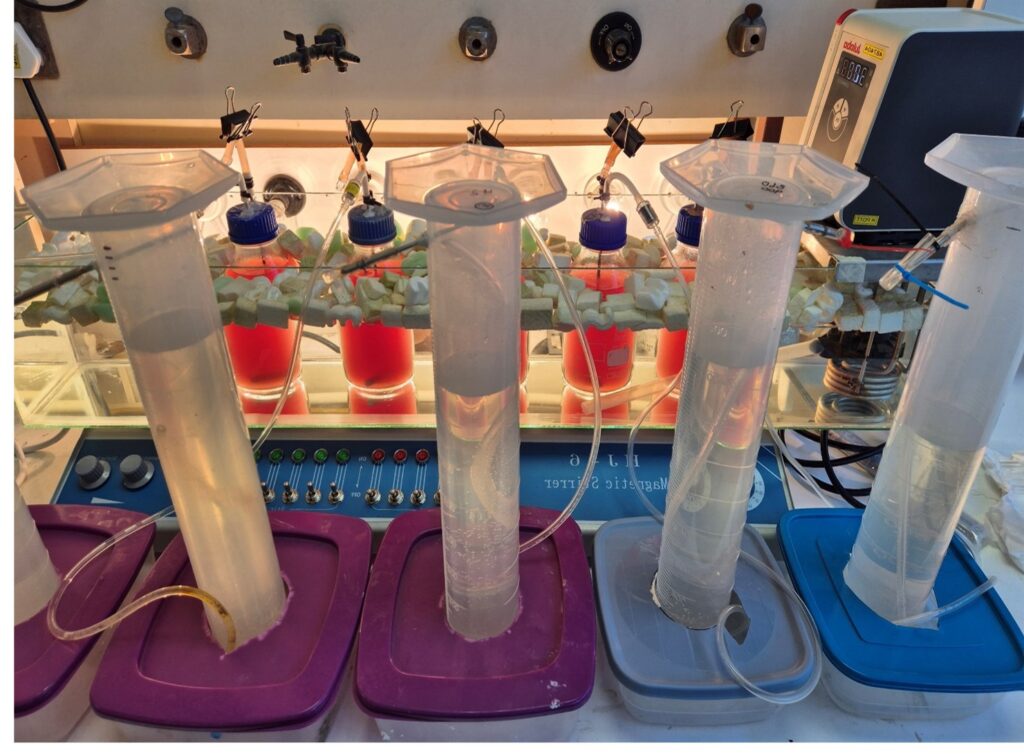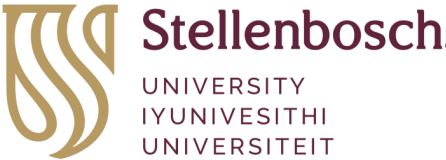
Kaden Moonsamy, a 2024 Stellenbosch University BEng Chemical Engineering graduate (cum laude), has recently been named a national finalist for the Mathews/IPGIP Prize for the best final-year engineering project. His project, “Dynamic Bioprocess Analysis of Rhodopseudomonas palustris Light, Temperature, and Glycerol-Dependent Biohydrogen Production,” focused on developing a model to predict the amount of hydrogen a specific bacterium can produce under varying environmental conditions, such as light intensity, temperature, and nutrient availability.
Kaden’s passion for both sustainable energy and biological sciences played a key role in shaping his research. “I’ve always been deeply interested in the energy sector, particularly in renewable and sustainable energy solutions. At the same time, I’ve had a long-standing fascination with biological sciences, and my interest in how biological systems can be used for innovative applications peaked during my undergraduate career. When I realised I could combine these two passions—energy and biology—into a single research project, I knew it was an opportunity I had to seize wholeheartedly,” he said.
The Integrated Postgraduate Industry Partnership (IPGIP) Prize was established in 2021 to honour EH Mathews (Snr.), who passed away on 20 June 2020. A strong advocate for academic excellence, Mathews sought to foster collaboration between academia and industry in the field of engineering. The prize was created to motivate engineering students to strive for excellence, strengthen ties between universities and industry, and encourage high-quality research at the undergraduate level.
South Africa has eight universities that produce BEng/BSc(Eng) graduates and seven Universities of Technology that train BEngTech and Adv Dip(Eng) engineers. Every year, the Dean’s office at each of the 15 universities selects the student with the best final-year engineering project, making them eligible for national recognition through the Mathews/IPGIP Prize.
Kaden first learned about the competition in November 2024, when the Chemical Engineering Department’s Head, Professor Christie Dorfling, informed him that his final-year project had been nominated for the prize. The final results were announced in early December, with each finalist receiving a certificate and monetary award in recognition of their exceptional work.
Despite the challenges he faced, Kaden approached the project with determination. “My project required developing a predictive model in a field I hadn’t explored before and involved using the Python programming language. I had just under eight months to complete the experimental work, write the final report, and simultaneously learn and become proficient in a completely new programming language,” Kaden explained.
Kaden was fortunate to work with Dr. Bovinille Anye Cho, his external supervisor, whose expertise in biological hydrogen production and system modelling guided him through the more complex aspects of the project. “Despite his busy schedule, he generously dedicated many hours to help me through the more challenging aspects of the project. His mentorship was crucial—he helped me navigate obstacles, offered critical insights, and ensured I stayed on track whenever I faced a roadblock,” Kaden said.
Being recognised as a finalist was an incredibly rewarding experience for Kaden. “When I first heard the news, I felt immense pride, seeing the months of hard work, dedication, and late nights come to fruition,” he shared. This recognition not only validated his work but also reinforced the importance of the research. “Knowing that others value my contribution to sustainable energy solutions motivates me to continue exploring this field,” Kaden added.
Kaden sees this achievement as a reflection of the strong support he received throughout his journey. “Being a finalist isn’t just about personal achievement; it’s a reflection of the incredible support from my family, friends, peers, and supervisors Mr Zwonaka Mapholi and Dr George Teke, who played a role in this journey,” he explained.
The experience has been transformative, teaching Kaden valuable lessons. “One of the most valuable takeaways has been the importance of perseverance. There were times when challenges felt overwhelming, but pushing through those tough moments led to growth and accomplishment,” he noted.
He also encourages fellow engineering students to keep sight of the bigger picture. “It’s easy to get lost in deadlines and technical details, but remembering the purpose behind your work and the potential impact it can have makes the journey more meaningful,” he said, adding that celebrating small victories and learning from setbacks is equally important.
Kaden is currently pursuing his Master’s degree in Chemical Engineering, with research focused on chemical pathways for hydrogen generation—an extension of his undergraduate work on biological hydrogen production.
“My final-year project solidified my interest in sustainable energy solutions and showed me the critical role engineers play in addressing global energy challenges,” Kaden reflected. Looking ahead, after completing his postgraduate studies, Kaden plans to pursue a career in the energy sector, particularly focusing on advancing hydrogen technologies, improving process efficiencies, and reducing environmental impacts.





